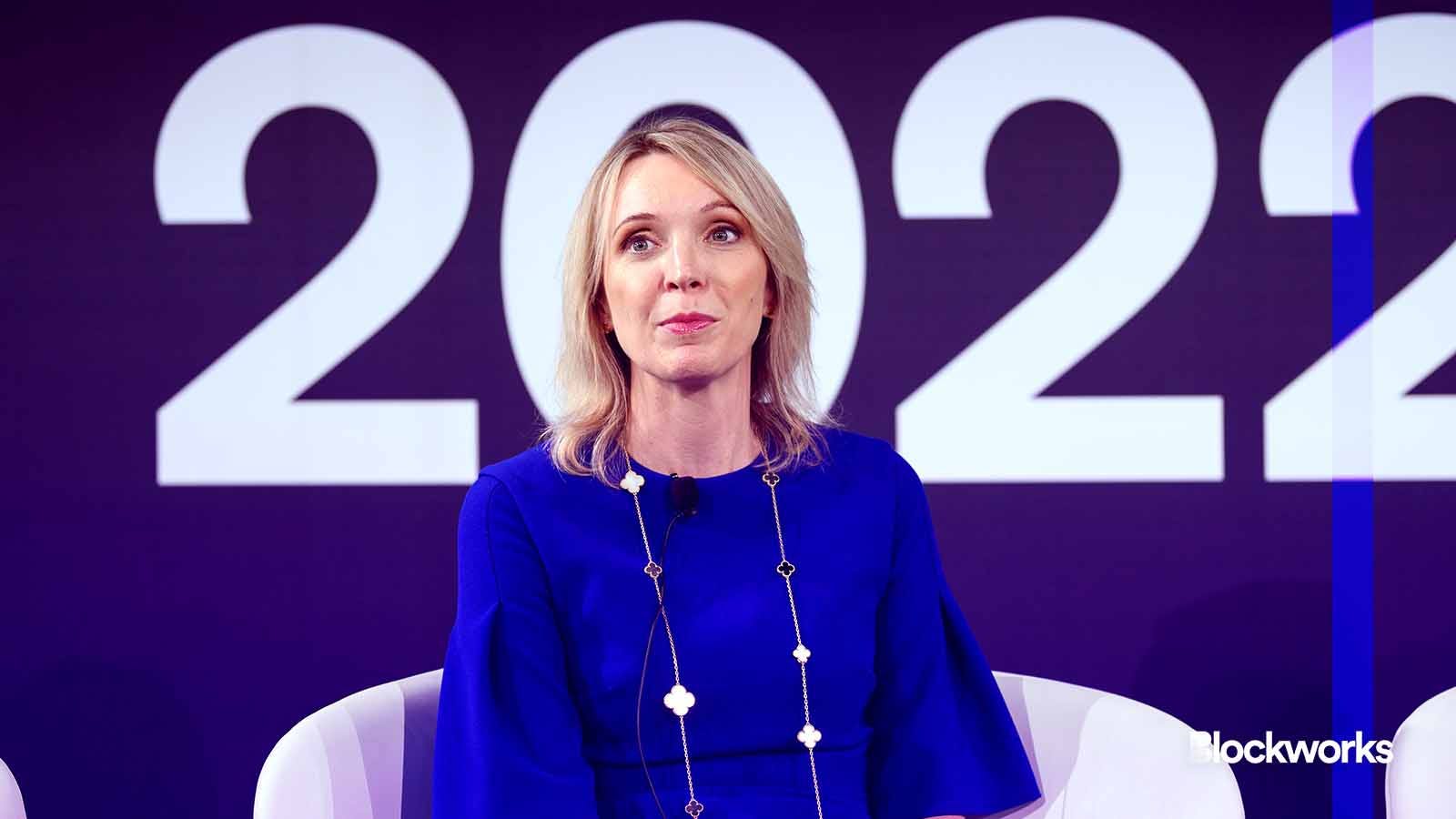Coinbase, Blockchain Association challenge FinCEN’s proposed mixer crackdown
FinCEN’s proposed rule could stigmatize legitimate crypto activity and drive illicit transactions abroad, Blockchain Association says

Blockchain Association CEO Kristin Smith | DAS 2022 for Blockworks
Several industry players have objected to a federal agency’s attempt to crack down on crypto mixing services, with one advocacy group calling the proposal “fundamentally flawed.”
The US Treasury Department’s Financial Crimes Enforcement Network (FinCEN) proposed in October to classify what it calls convertible virtual currency mixing, or CVC mixing, as “a class of transactions of primary money laundering concern.”
The proposal is FinCEN’s first-ever use of its authority to target a transactions class as such.
Read more: FinCEN seeks tighter controls on crypto mixing services
Mixing is a process that blends different crypto transactions to obscure the original source — making it more difficult to trace specific transactions.
FinCEN director Andrea Gacki said in an October statement that crypto mixing “allows players in the ransomware ecosystem, rogue state actors and other criminals to fund their unlawful activities and obfuscate the flow of ill-gotten gains.”
Marisa Coppel, head of legal at Blockchain Association, said in a statement that FinCEN’s proposal is “far too broad in scope and application.”
In a Jan. 22 letter responding to the proposal, the Blockchain Association argued that FinCEN’s failure to consider the many legitimate uses of crypto mixing makes it “makes it impossible for the agency to rationally conclude that the class is of primary money laundering concern.”
“CVC mixing protocols help law-abiding individuals achieve on the otherwise public blockchain the privacy typical of transactions in the traditional banking system,” the group wrote. “There is nothing inherently suspicious about desiring the same degree of privacy available for traditional financial transactions.”
FinCEN’s decision to impose reporting requirements on CVC mixing transactions “will stigmatize broad swathes of legitimate digital asset activity, impose significant costs on the digital asset industry and drive illicit digital asset transactions abroad,” Blockchain Association added.
Coinbase also challenged the proposal in a Jan. 22 letter. The crypto exchange noted that regulated virtual asset service providers (VASPs) are already required to file suspicious activity reports on illicit mixing activity.
“The NPRM fails to explain why these existing requirements are inadequate to FinCEN’s purposes,” Coinbase wrote.
The company added in the letter that the FinCEN proposal does not include any monetary threshold for record-keeping and reporting obligations — leading to “bulk reporting of data of little help to law enforcement.”
FinCEN could not immediately be reached.
The FinCEN proposal comes after the US Treasury Department added decentralized cryptocurrency mixing service Tornado Cash to its sanctions list in August 2022. A year later, the company’s co-founders, Roman Semenov and Roman Storm, were charged with US federal money laundering and sanctions violations.
Read more: Tornado Cash plaintiffs seek appeals after federal court losses
Coinbase is no stranger to challenging federal agencies amid a broader crackdown on the crypto space.
The publicly traded crypto company remains in a legal battle with the US Securities and Exchange Commission after the regulator last year sued Coinbase for allegedly operating as an unregistered exchange — claims the company has denied.
“This [proposal] comes at a time of enormous opportunity for the United States to lead the world in digital asset innovation,” Coinbase wrote in its latest letter to FinCEN. “But this opportunity depends in significant part on US regulators, like FinCEN, creating a regulatory landscape that fosters the growth of compliant companies while holding accountable those that fail to meet their obligations.”
Get the news in your inbox. Explore Blockworks newsletters:
- The Breakdown: Decoding crypto and the markets. Daily.
- 0xResearch: Alpha in your inbox. Think like an analyst.






